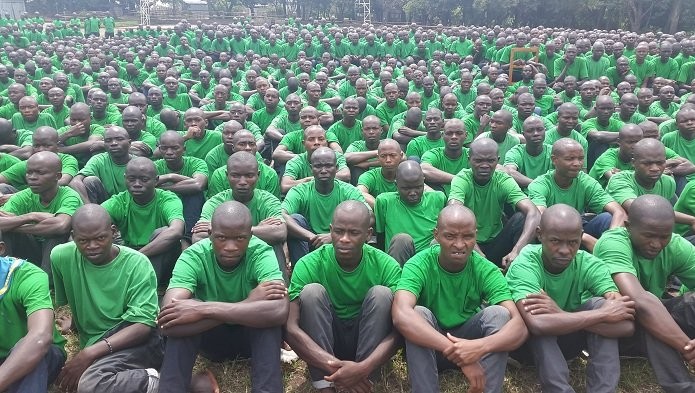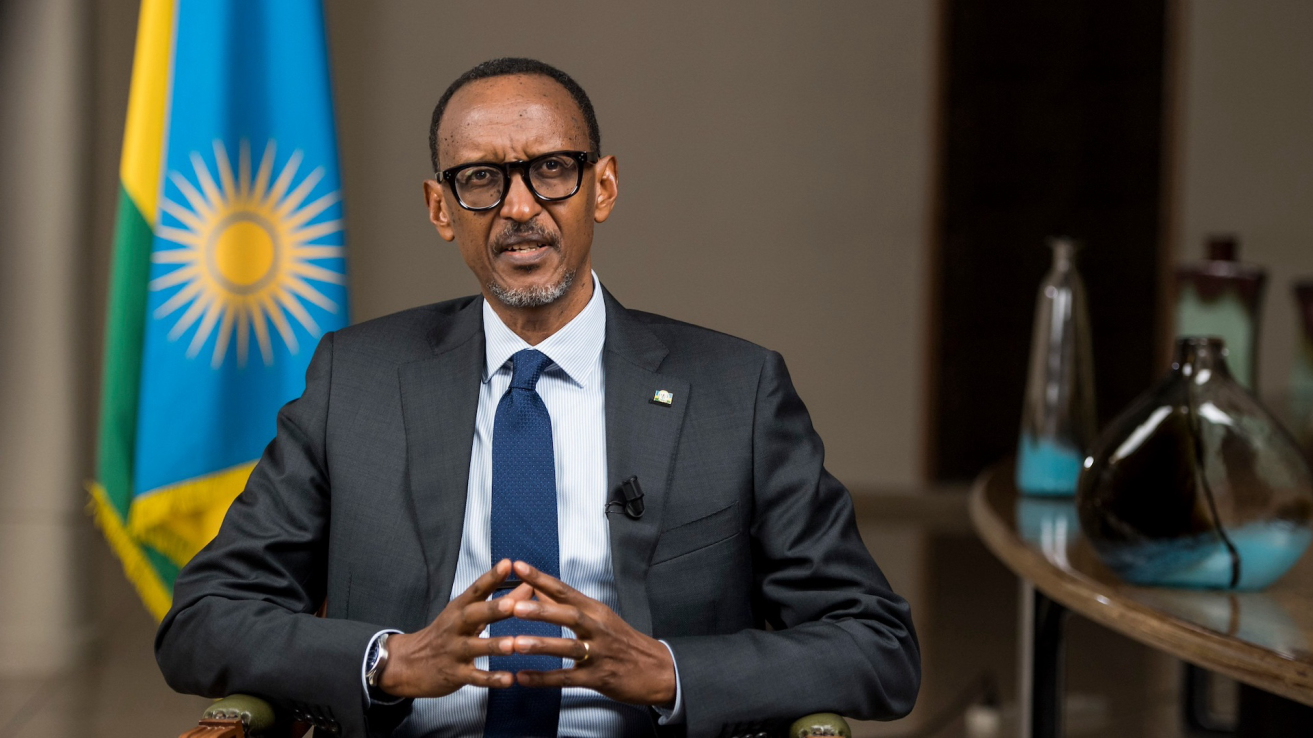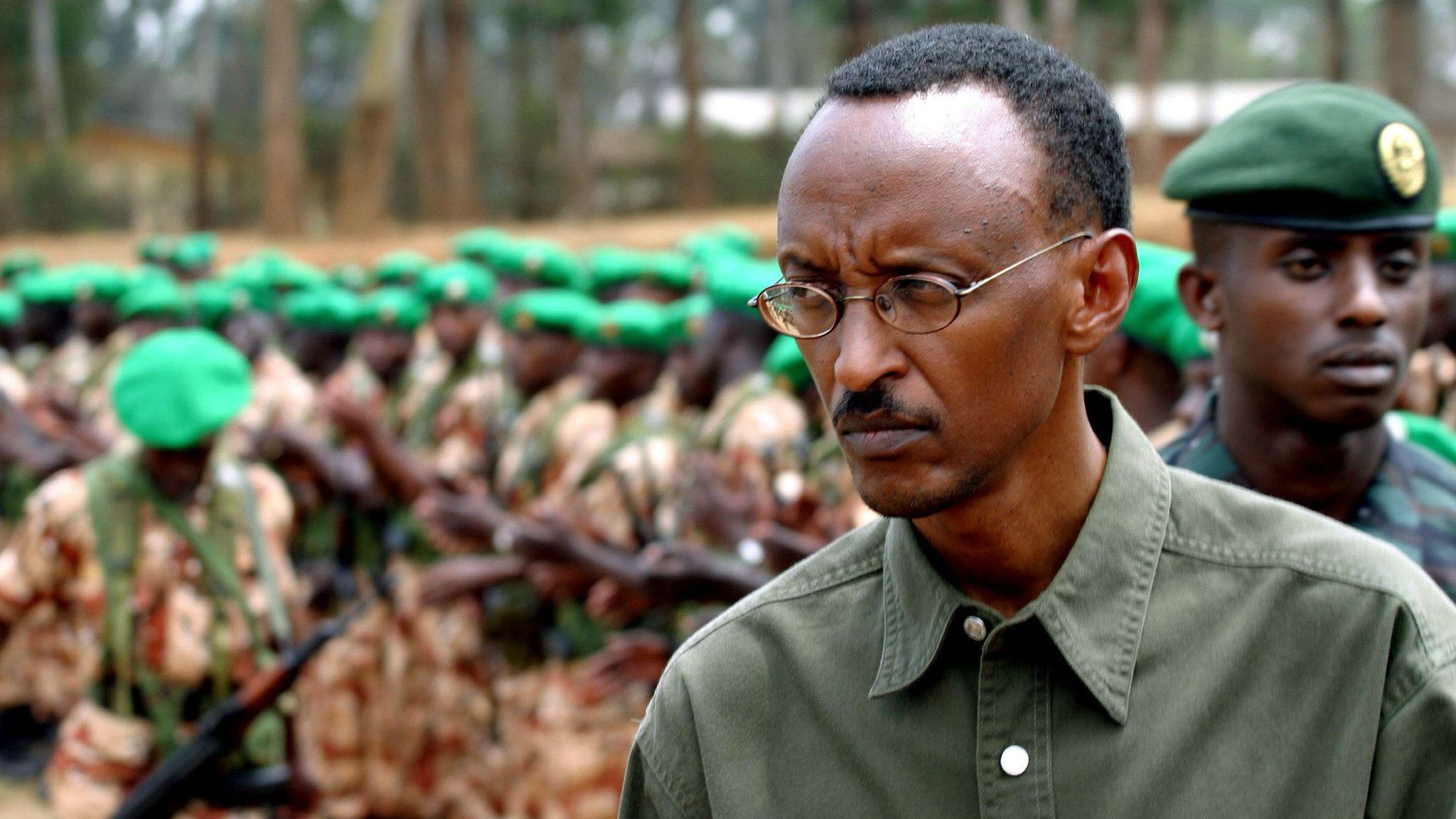
The hidden cost of Kagame’s War in Eastern DRC
President Paul Kagame’s ongoing military involvement in the Democratic Republic of Congo (DRC) is a widely acknowledged reality, extensively documented by independent journalists, human rights organisations and the United Nations. Substantial evid...
April 28, 2025President Paul Kagame’s ongoing military involvement in the Democratic Republic of Congo (DRC) is a widely acknowledged reality, extensively documented by independent journalists, human rights organisations and the United Nations. Substantial evidence, including satellite imagery, intelligence reports and testimonies from defectors, confirms Rwanda’s support for the M23 rebel group.1 Despite this, Kagame consistently denies any involvement, employing a strategic disinformation campaign that obscures the truth from the Rwandan public. The conflict in the DRC extends beyond territorial disputes and illicit mineral exploitation; it has profound consequences for Rwandan soldiers and their families and poses a serious threat to the stability of the East African Community (EAC).2 The most tragic consequence of Kagame’s covert military operations in the Democratic Republic of Congo is the profound toll on Rwandan soldiers and their families. Rwanda is reported to have sent 7,000–12,000 soldiers into eastern DRC to support M23.3 Young men, often from marginalised communities, are recruited into the Rwandan Defense Forces with assurances of stable employment and motivated by a sense of patriotic duty. However, many are deployed to the DRC on missions that their own government refuses to acknowledge, and a significant number never return home.4 For families, the secrecy surrounding these deployments transforms grief into an unrelenting ordeal. Reports indicate that many never receive official confirmation of their loved one’s death while others are given sealed coffins with no opportunity to verify the remains. Some soldiers have been buried in unmarked graves within Rwanda or mass graves in the DRC, their existence erased from public records. The increasing number of burial sites at Kanombe Military Cemetery in Kigali coincides with the escalation of M23’s offensives, further fuelling concerns about rising casualties. Speaking out about a soldier’s disappearance carries significant risks. Families who seek answers often face government harassment, while journalists investigating these cases have been subjected to threats, imprisonment, or worse. The suspicious death of journalist John Williams Ntwali,5 who had been reporting on military casualties, highlights the grave dangers of exposing Kagame’s covert war. Beyond the loss of life, the psychological and economic burden on affected families is profound. Many widows and orphans of fallen soldiers receive little to no support, despite Kagame’s rhetoric of national unity and resilience. Financial hardship forces many to remain silent, fearing retribution if they seek accountability. The social impact of these UNAC.
Since leading the Rwandan Patriotic Front to end the 1994 genocide, President Paul Kagame has received international acclaim for transforming Rwanda into a stable and rapidly developing nation. His leadership has been recognised globally, with Rwanda often cited as a model for economic growth and reconciliation in postconflict societies. Kagame has also cultivated strong ties with the United Kingdom, particularly under previous Conservative governments. In April 2022, the UK and Rwanda signed the Migration and Economic Development Partnership, under which the UK planned to relocate asylum seekers to Rwanda for processing and potential resettlement. This agreement was part of broader efforts to deter unauthorised immigration to the UK. While the policy faced legal challenges and was eventually deemed unlawful by the UK Supreme Court in November 2023, it nonetheless elevated Rwanda’s international standing and showcased its willingness to engage in complex global issues. However, despite these international accolades, Rwanda’s covert military operations in the DRC have generated substantial profits – estimated at over US$800,000 per month from M23-controlled mining operations according to the UN group of experts reports – yet ordinary Rwandans see no economic benefits. Instead, public debt has soared from 19% of GDP in 2010 to 73% in 2023. More than 60% of Rwandans live on less than US $2.15 per day, while youth unemployment exceeds 20%.6 Kagame’s military adventurism has enriched a small political and military elite, leaving the broader population to bear the financial and social costs. The economic burden on ordinary Rwandans is further exacerbated by government policies. High rates of malnutrition persist in rural areas, where families struggle to afford basic necessities.7 In response, the government has proposed tax hikes and increased pension contributions, which will only intensify the rising cost of living. These measures disproportionately affect the working class, already contending with significant economic challenges. While Kigali’s modern skyline may suggest prosperity, the reality for the average Rwandan is one of increasing difficulty. Rwanda’s economy remains heavily reliant on foreign aid, yet its involvement in the DRC has led to heightened scrutiny from international donors.8 The ongoing conflict drains national resources, diverting funding from critical sectors such as health and education, thereby worsening economic hardship for ordinary citizens. In a recent speech during a citizen outreach event in Kigali, Kagame acknowledged the economic strain faced by the population, urging citizens to ‘tighten their belts’.9 However, this message stands in stark contrast to the lifestyle enjoyed by Kagame and his family, who travel in private jets owned by Crystal Ventures, the business empire controlled by his regime.10 The national budget allocates significant resources to the military, prioritising regional aggression over social welfare. There is no specific percentage mentioned in Rwanda’s budget allocation to security. However, in 2023/24 budget, under the transformational governance pillar, the Rwandan government planned to spend Frw 690.1 billion, which is approximately 13.7% of the total budget.11 Meanwhile, infrastructure projects touted as signs of economic progress mask the realities of growing inequality. Foreign investments in Rwanda’s capital, Kigali, create an illusion of prosperity while rural areas struggle with high poverty levels and inadequate public services. Kagame’s war efforts come at the expense of healthcare, education, and job creation – sectors that could genuinely uplift the country’s population.
Kagame’s aggressive policies in the DRC have exacerbated tensions within the EAC, threatening regional stability. While the EAC has attempted mediation efforts, 12 Rwanda’s continued military support for M23 undermines these initiatives. Kagame’s tactics in the DRC bear striking similarities to President Vladimir Putin’s strategy in Ukraine prior to February 2022. Like Putin, Kagame backs separatist forces, denies official involvement, and manipulates nationalist rhetoric to justify intervention. The Economist recently likened Kagame’s actions to Putin’s playbook – using proxy forces as a prelude to direct military engagement.13 Left unchecked, Rwanda’s actions risk escalating into a broader regional conflict, with devastating humanitarian consequences. Rwanda’s expanding military presence in eastern DRC has raised concerns among East African Community leaders, who suspect that Kagame’s ambitions extend beyond Rwanda’s borders. This has led to a diplomatic rift within the bloc, undermining efforts towards regional economic integration and security cooperation.14 Some EAC member states perceive Rwanda’s intervention as a violation of the bloc’s principles, further straining already fragile diplomatic relations. Since 2013, Rwanda has been involved in conflicts with all its neighbours – Tanzania, Burundi, Uganda, and the DRC – due to Kagame’s assertive foreign policy. Tanzania expelled Rwandan nationals,15 while tensions with Uganda16 and Burundi17 led to border closures. Meanwhile, Rwanda’s involvement in the DRC has fuelled hostilities and deepened mistrust between the two nations. Furthermore, Kagame’s defiance of international mediation efforts weakens the EAC’s credibility as a regional body. While peacekeeping initiatives and diplomatic dialogues are proposed and attempted, Rwanda’s actions directly contradict these efforts, making it difficult for the EAC to present a united front in resolving conflicts.
The increasing economic hardship facing Rwandans raises an important question: could worsening living conditions make Kagame politically vulnerable? While discontent is growing, Kagame maintains an iron grip on power through a combination of media censorship, political repression and an extensive security apparatus. Unlike other leaders who have been unseated by economic crises, Kagame’s control over Rwanda’s political and military institutions makes it unlikely that rising public frustration alone will threaten his position. Even as ordinary citizens struggle, the state’s mechanisms of control remain firmly intact, ensuring that dissent is swiftly crushed. The international community has imposed limited sanctions on Rwandan military officials,18 but these measures remain insufficient. Stronger actions are needed, including tighter sanctions on Rwanda’s mineral exports and increased scrutiny of its military activities. Donor nations must also demand transparency, ensuring that foreign aid does not indirectly fund Kagame’s military campaigns. Despite mounting evidence of Rwanda’s involvement, many Western nations remain hesitant to take decisive action due to Kagame’s carefully cultivated image as a reformist leader. His government adeptly navigates diplomatic channels, securing international funding while simultaneously repressing domestic dissent. Rwanda’s participation in international peacekeeping missions further enhances its political leverage,19 enabling it to deflect scrutiny of its military operations in the DRC. Ultimately, continued silence perpetuates impunity. Without significant pressure from both the Rwandan public and the international community, Kagame’s military actions in the DRC will persist, claiming more lives, destabilising the region, and exacerbating Rwanda’s economic and social challenges. The global community must demand justice – not only for the Congolese people but also for the countless Rwandan families who continue to bear the ultimate cost of Kagame’s covert war
Notes
1. https://news.un.org/en/story/2025/02/1160406.
3. https://www.reuters.com/graphics/CONGO-SECURITY/MAPS/movaykzaava/
4. Thousands of RDF soldiers are reported to have died in eastern DRC. https://www.theguar dian.com/global-development/2025/feb/07/democratic-republic-congo-drc-paul-kagamem23-rebels-goma-rwanda-troops-dying-denials.
5. https://www.hrw.org/news/2023/07/18/questions-remain-over-rwandan-journalistssuspicious-death.
6. https://tradingeconomics.com/rwanda/unemployment-rate.
7. https://www.unicef.org/media/152281/file/Rwanda-2023-COAR.pdf.
8. https://www.reuters.com/world/uk-warns-rwanda-threat-aid-over-its-involvement-drcconflict-2025-01-30/; https://issafrica.org/iss-today/is-the-world-finally-growing-weary-ofkagame-s-excesses.
10. https://www.france24.com/en/20170730-ruling-partys-business-arm-dominates-rwandaneconomy.
11. https://www.gov.rw/blog-detail/government-announces-frw-50301-billion-budget.
12. https://allafrica.com/stories/202503250123.html.
13. The Economist, 28 January 2025, https://www.economist.com/leaders/2025/01/28/rwandadoes-a-putin-in-congo.
15. https://www.bbc.com/news/world-africa-23930776.
16. https://www.voanews.com/a/uganda-rwanda-agree-to-reopen-border-after-3-years-/ 6416798.html.
17. https://apnews.com/article/burundi-rwanda-border-rebelsfaf424ae62a47f5519f21fd846978bca.
18. https://www.politico.eu/article/rwanda-and-belgium-cut-ties-as-eu-ministers-adoptsanctions/.
19. https://forbiddenstories.org/how-rwanda-leverages-peacekeeping-for-influence/; see also https://acleddata.com/2024/09/27/the-rwanda-defence-force-rdf-operations-abroadsignal-a-shift-in-rwandas-regional-standing/.
See Also:

Bribery, Lashes, Death And TVE...
Rehabilitation or transit centers are spread across different parts of Rwanda. As per official narra...
Articles
Why Kagame Would Not Win A Fre...
In a hypothetical scenario where free and fair elections were conducted in Rwanda, it is highly ques...
Commentary & Analysis
Denying A Genocide By Investig...
They are going to say that we deny the genocide,” the colleague at Forbidden Stories – the project o...
The Rwanda Classified Project Investigations
Kagame’s Dual Grip: Repression...
Paul Kagame's regime in Rwanda is a striking example of how modern autocrats keep a firm hold on pow...
Commentary & Analysis